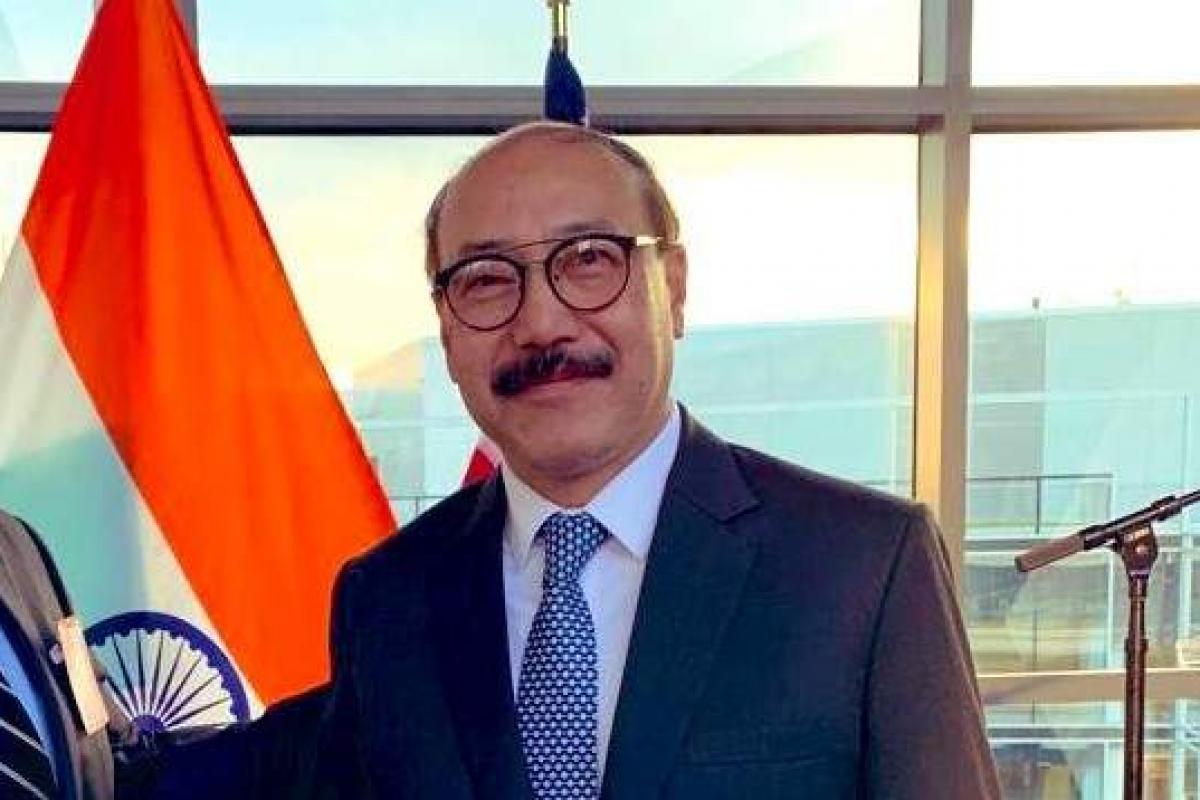New Delhi: Indian Foreign Secretary Harsh Vardhan Shringla’s visit to UK came on the eve of the US Presidential election, and the week after India and US signed the fourth foundational agreement that establishes interoperability between militaries, the transfer of high-end technologies and creates common standards and systems between the partners.
In an impressive and eloquent speech at Policy Exchange, Britain’s forward thinking think-tank, which in July announced an international commission on the Indo-Pacific led by the former Canadian PM Stephen Harper, Shringla noted India’s role in mainstreaming the geographical area he defined “as stretching from the west coast to North America to the eastern shores of Africa”. Shringla put in perspective the historical, cultural, economic and geopolitical reasons why India sees the Indo-Pacific as a whole “country”. This resonates with how deeply India integrates the past with the present and the future. Shringla outlined Prime Minister Narendra Modi’s pillars of a rules-based regional architecture, “The Indo-Pacific Oceans Initiative”.
The audience may have been gobsmacked at India’s 360-degree strategic vision, integration and implementation of humanitarian, commercial and security policies in the sphere of influence. He noted that recently Germany’s Indo-Pacific policy echoes India’s principles and it is hoped that UK, although geographically distant but an economic stakeholder, will follow France, the Netherlands and Germany with an Indo-Pacific strategy.
Shringla referred to how after the two World Wars an Atlantic consensus was formed and how post-pandemic disruption to the global systems “could nurture similar approaches to the Indo-Pacific”.
Shringla met with Philip Barton, his equivalent at the FCDO, Lord Ahmad MOS Commonwealth, David Quarrey International Affairs Adviser/acting National Security Adviser; and Priti Patel, Home Minister, about student and other visas. UK’s refrain is “there is no cap on student visas” but Indian students feel there is also no incentive.
Gabriel Elefteriu, Director of Research and Space Policy at Policy Exchange, told The Sunday Guardian, “We were delighted to host His Excellency for this important address at Policy Exchange, at a key moment in world affairs when India’s perspective and voice are so vital. As the Foreign Secretary recognised, the work of our Indo-Pacific Commission—chaired by Stephen Harper, the former Canadian Prime Minister—will ‘feed into government thinking and shape the United Kingdom’s Indo-Pacific strategy’. British policymakers can see that New Delhi is reassessing its traditional strategic policy and that there is scope for a major UK-India ‘reset’ in the near future. This would be a necessary and timely development—and could form a major plank in Britain’s new approach in the region.”
From both perspectives this visit was a resounding success. In his discreet and consummate diplomatically correct way Shringla raised awareness about India’s present and future position in the world, and inadvertently alerted experts and parliamentarians to how UK was behind the curve in Indo-Pacific strategy and engagement with India. The Conservative government might feel that they have India covered as there are four ministers of Indian origin, but this does not mean they are super aware or super connected with what’s cooking in all spheres, have the spads of these four ministers got expertise and understanding when it comes to Indian sentiment. The question is who is co-ordinating the whole UK approach to bilateral relations? One step in the right direction was Rishi Sunak and Nirmala Sitharaman agreeing to strengthen the economic relationship; and there is an FTA simmering in the background, but as India likes a comprehensive approach it would be naïve to think trade and an FTA are the whole picture. What this visit brought to attention was that the Conservative government lacked a dedicated special adviser to take a panoramic view of UK-India affairs.

